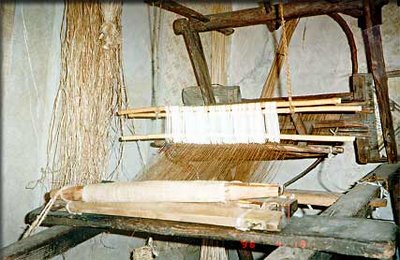
HEMP IN KOREA
A recent article in the Journal of Industrial Hemp, vol. 11, # 1 [2006], written by Robert C. Clarke, gives us a fascinating look at hemp in Korea, mainly South Korea/Republic of Korea.
Production levels are much less than what they were in the past, but cultivation and processing still go on, to an extent, mainly in the Andong, Boseong, Jeongseon, Geochang, Muju and Gokseong regions.
As recently as 1963, hemp (known as sambe) was grown in every province, although 82% or more was grown in the above mentioned regions.
Whilst there is no mention of hemp having ever been totally outlawed, Clarke states that hemp gorwers must now have a government permit. Landraces are entirely dioecious, moderately branched and reach 8-13' (2.5-4.0m) in height at maturity, with a lower seed yield than European varities. Some taxonomists consider Korean and other Asian broad-leafed hemp varieties to be a seperate species. Herbicides and pesticides are rarely used, although there is an 1960s record of 0.1% Endrin sparying used to control stem borers. At present, only one pest is deemed to cause economic damage, the hemp flea beetle.
Fibre yields are 1-1.4 tons/hectare (bast fibre only, dry, processed weight). A unique method of processing hemp fibre in Korea is steaming, which Clarke notes to be "faster, more controllable and less polluting than water retting in open ponds." Traditional steaming cabinets are heated from below, using brush and hemp hurds from the previous harvest. After steaming and and hour of cooling, the wet fibres are removed by hand.
Most of the work, including scutching (carried out with a blunt knife called a sam top) and weaving are carried out by hand. (Above is an image of a Korean loom used for weaving).
The hemp industry is seen as a part of the culture and is thus encouraged, with hemp weaving designated an Intangible Cultural Asset No. 1 in the Andong City District, and ICA No. 32 in the Jeollanam Province. Nonetheless, foreign competition, mostly from China, has placed great strain on the market, and some Korean hemp enterprises have been forced to close their doors.
No comments:
Post a Comment